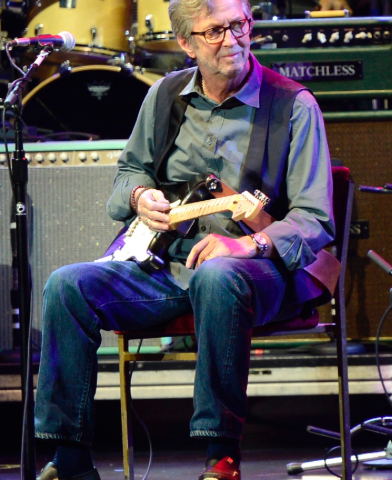The audience quiets as they sense movement on the pitch dark stage. A pirate-like cackle echoes over the PA and a lone spotlight flickers and then illuminates the familiar and well-aged face of Keith Richards. The crowd erupts in applause and cheers at the revelation of identity of tonight’s “surprise guest.” Basking in the attention and sporting a wry smile, Richard intones, “Eric’s done a great job so let’s give the man a clap.” He then fingers his black Gibson and plays the walk down that opens “Key to the Highway,” a 1940s blues song popularized by Big Bill Broonzy and covered most famously by Eric Clapton and Derek and the Dominos on the 1970 “Layla” album. Drummer, Steve Jordan, pianist Chris Stainton, bassist Willie Weeks, and Mr. Clapton himself fall in on the easy, loping tempo that Richards has established.
It’s the closing set of the second and final day of Eric Clapton’s fourth rendition of his Crossroads Guitar Festival, a concert series the guitarist has hosted every three years since 2004 to benefit the substance abuse treatment facility he founded in Antigua. Clapton has been a gracious and humble host throughout this 2013 rendition and he stays in character now by ceding center stage and giving Richards most of the guitar breaks.
“It’s great to be back in this room,” says Richards over thunderous applause. “Now we’re gonna rock it up,” he adds as he launches into the double-stop intro to Chuck Berry’s “Sweet Little Rock N’ Roller.” Clapton beams as he and Richards trade Berry-esque solos, but at song’s end the host nods to the Rolling Stone to play an extended outro.
“Rocking it up” has been today’s theme. While yesterday’s music spanned jazz to blues, Bossa nova to rock, today’s music has focused on the high energy side of the scale. The event opened with slide guitar wizard Sonny Landreth and band offering a couple of scorching instrumentals before Sonny welcomed fellow wizard Derek Trucks to the stage. The set culminated with Landreth’s “Congo Square,” a musically mesmerizing piece with ringing harmonics and adventurous chord forms with lyrics laced with voodoo references and placed in the famous spot in New Orleans’s Louis Armstrong Park. Landreth’s solo showcased screaming slide lines with a bass line moving behind the slide. When the band dropped into half-time, Trucks supplied a horn-like melodic improvisation. The song ended with the guitarists trading fours, twos, and then single bar solos. Even the usually laconic Trucks broke into a wide grin.
Both players would later tell me that they’d wanted to collaborate for some time. As Trucks put it, “Well, Sonny’s a great guy and I knew the personalities would work. Our styles are so different, though, that I wasn’t sure. But it was great.” Indeed. Landreth told me, “This is for a great cause and that’s when the best music happens, when there’s a greater goal.”
That greater goal for the next act was a reverential reference to the past. With twelve string acoustic guitar in hand Doyle Bramhall II first played a close approximation of Jimi Hendrix’s acoustic rendition of “Hear My Train A Comin’.” John Mayer then joined him and the two played “Change It,” a song that Bramhall’s father wrote for Stevie Ray Vaughan.
“You know,” Bramhall would tell me, “I thought it was fitting because my father passed away about a year ago. I thought it was a good song for paying tribute to my father and Stevie Ray.”
It was a moving moment perhaps topped in meaning only by one of the day’s other acoustic acts, Greg Allman, Derek Trucks, and Warren Haynes of the Allman Brothers Band. Trucks and Haynes opened the set with “Old Friend,” a song they performed on the band’s most recent album and a song Trucks told me they knew worked acoustically. The trio closed the set with one of the band’s other rare acoustic numbers, “Midnight Rider” from their first album. But it was the song sandwiched between these two that provided what may have been the most poignant moment of the Festival: Allman singing Neil Young’s “The Needle and the Damage Done.” “We thought the tune was appropriate for the cause,” Trucks told me. “And the person singing. It was a pretty powerful tune, powerful message.”
Another moving moment came at the opening of Jimmie Vaughan’s set when he performed “Six Strings Down,” the song he wrote in tribute to his younger brother Stevie Ray. But after that tune, Vaughan stepped to the side of the stage and played sideman to a Texas blues and swing tribute. Lou Ann Barton belted out a blues number and Dave Biller, a legend of the Austin Texas music scene, led the band on the swing instrumental. Biller played chorus after chorus, the horns got solos, and Vaughan beamed stage left.
Blake Mills, up next, was the Festival’s big revelation. The first night he burned brightly with Booker T. & Steve Cropper. Tonight the guitarist previously unknown to the crowd got his own set. Derek Trucks provided me with the background on the rise of Blake Mills. “About a year and a half ago I got a call from Eric and he’d heard something on the radio and he asked, ‘Is that you playing slide?’ I said, ‘It’s not me but I like it!’ [Laughing] I tracked the song down and found out it was Blake and told Eric and he asked Blake to play [the Crossroads Festival].”
So taken was Clapton with Mills’s guitar playing that he had originally planned to be the accompanist. Trucks, the man who was everywhere this weekend, explained to me why he appeared instead of the host. “Whenever Eric wants to do something but can’t, he says to me, ‘Why don’t you do it, Derek?’ And he knows I will!”
Mills played a slow, tremolo-laden rendition of his own “Curable Disease” and then welcomed Trucks for one of the most surprising tunes of the evening, the song first recorded in 1960 by the Drifters, “Save the Last Dance for Me.” Mills played a slow chord-melody backup to Trucks’s elegant slide solo played on a 1930s Gibson. “My voice was giving out from a couple of 3:00 am mornings from the ongoing party here,” Mills told me, “So I tried to find a song that would work for my voice.” It did.
It was all up-tempo for the next act, Los Lobos. They opened their set with Susan Tedeschi joining in to sing “Burn it Down,” a song she also sang on the group’s most recent CD. Tedeschi is a brilliant guitarist and with her husband Derek Trucks fronts the Tedeschi Trucks Band. Her appearance sans instrument here highlighted a curious omission: there were no female guitar players on the Festival bill.
Los Lobos did add another kind of diversity to the revelries by next offering “Que
Bonitos,” a rollicking song sung in Spanish. It was back to the blues, though, when first Robert Cray and then Eric Clapton sat in with the band. Both added classic, stinging solos.
The first night country guitar slingers Vince Gill and band with Keith Urban and Albert Lee took the stage, but they played anything but country music. Tonight they made amends by adding blistering guitar solos to songs like Rodney Crowell’s “Ain’t Living Long like This.” But, they also offered covers of Dire Straits’ “Setting Me Up” and the Rolling Stones’ “Tumbling Dice.” With the latter, Urban proved himself the Festival’s “king of the cover,” having sung a similarly excellent “Don’t Let Me Down” the first night.
With the exception of a certain pirate’s appearance at the close of the evening, the star who most excited the crowd was probably Gary Clark, Jr. Last night he played solo, augmenting his talented digital skills by putting his feet to work on bass drum and high hat cymbal. Tonight he was a shape-shifting band leader. He began with feedback-driven opening to “When My Train Pulls In” that featured menacing, shouted vocals that yielded to a long guitar solo filled with hints of Delta and Chicago blues and Jimi Hendrix. Confounding the audience he then provided beautiful falsetto vocals to a soulful and mournful “Please Come Home,” complete with a Texas twang meets Motown guitar solo.
Clark then brought back the distortion, feedback, and menace with his best known song, “Bright Lights,” which culminated with the guitarist playing a wailing, dissonant chord high up on his guitar’s neck while chanting “you gonna know my name.” No doubt.
If ever Jeff Beck would have trouble following another guitarist this would be the night.
Of course, Beck never has trouble following anyone.
Beck followed Clark with overdriven, sizzling music that was as different from Clarke’s, well, overdriven, sizzling music as was possible: a gorgeous rendition of the Mahavishnu Orchestra’s “You Know You Know.” Beck was as elegant and raw as ever, somehow coaxing the tone of a 1,000 pound violin from a Fender Stratocaster. He offered screaming harmonics, volume knob wizardry, and creative use of the whammy bar from the first note.
Oh, and Beck also featured women on stringed instruments! Violinist Lizzie Ball* and bassist Tal Wilkenfeld both played extended and stunning solos throughout the set. And at the Crossroads Festival! Ball’s performance, in particular, was spellbinding, and perhaps most dramatically in “Mna Na Heirann” (“The Woman of Ireland”). Beck opened by stating the melody and stepped aside as Ball played a gorgeous, liquid solo. Beck then returned with a contrasting solo that was at once beautiful and challenging, leaping from a tone that mimicked Ball’s violin to barking, squawking, well, Beckian lines. Beck then returned to the melody over which at song’s end Ball added a short, beautiful cadenza.
And Beck wasn’t done shining the spotlight on women. Beth Hart took the role of Rod Stewart from the early days of the Jeff Beck group though with a far more powerful voice, she howled where Stewart merely sang. Hart screamed and Beck’s guitar screamed. Beck’s guitar moaned and Hart moaned. They make for a very powerful pair.
Though Clapton’s closing set began with power supplied by Keith Richards and closed with the power of the host’s guitar playing, its most memorable moment may have come somewhere in the middle when Robbie Robertson announced, “I’m going to do a song now in remembrance of some dear old friends.” He then sang a moving rendition of “I Shall Be Released,” the Bob Dylan song that his three now deceased Band mates, Richard Manuel, augmented by harmonies by Rick Danko and Levon Helm, sang so effectively on the Band’s debut album, “Music from the Big Pink.”
After two days of yielding the spotlight to his guests, a stately Clapton finally yielded to his inner guitar god. It was as though his bottled up emotions finally came to the fore, first in funky wah-wah to Blind Faith’s “Got to Get Better in a Little While” and then a piercing solo on “Crossroads,” the Robert Johnson song Clapton played most memorably with Cream. Since that time, Clapton has usually played the song at a languid tempo. Though he certainly didn’t match Cream’s frenetic pace, Clapton did stomp out at least a mid-tempo beat that served the song and his playing very well. He played a fiery solo that, to my ears, was the best he’s played on this song in some time.
Another Robert Johnson song, ‘Little Queen of Spades,” followed and featured Clapton doing what he does best: the slow blues. He opened with a beautiful major pentatonic intro in which he bent his strings into the blue notes and then played a soaring solo that moved in and around the beat and featured blazing runs.
With that, the band slipped into “High Time We Went,” a song penned by Joe Cocker and the keyboard player on stage tonight, Chris Stainton. It was all hands on deck as nearly all of the Festival’s guitars took the stage. Eschewing a solo himself, a grinning Clapton pointed to guitarist after guitarist to take a solo. When it turned out that there were more guitars than chords, the guitarists unplugged and handed the chord to their neighboring player.
Clapton closed the Festival with five words audience and performers alike had been yearning to hear: “See you in three years.”
As I walk out of Madison Square Garden to the strains of Roy Rogers crooning “Happy Trails” over the Garden’s PA, I can’t help but reflect on some of the extraordinary music I witnessed over the Festival’s ten hours and two days. But what really resonates is the grace and humility of the host, a man who held not only the guitar music lovers in the palm of his hand this weekend, but nearly every fan of rock and roll. This is a man once memorialized on walls in London with “Clapton is god” graffiti. Yet, he exuded grace and humility at every turn this weekend.
Doyle Bramhall II put it best during our chat moments before he took the stage with Clapton for the Festival’s finale. “Sure, I’ve learned a lot about music and guitar playing from Eric. But, I’ve learned a lot more about life, being the best person you can be, doing your best to do the right thing. And that’s the stuff that really matters.”
Amen.
See you in three years.
* I initially misidentified the fabulous violinist whom Jeff Beck properly featured over and over in his set. It was the amazing Lizzie Ball. Please visit her site and catch her in concert.
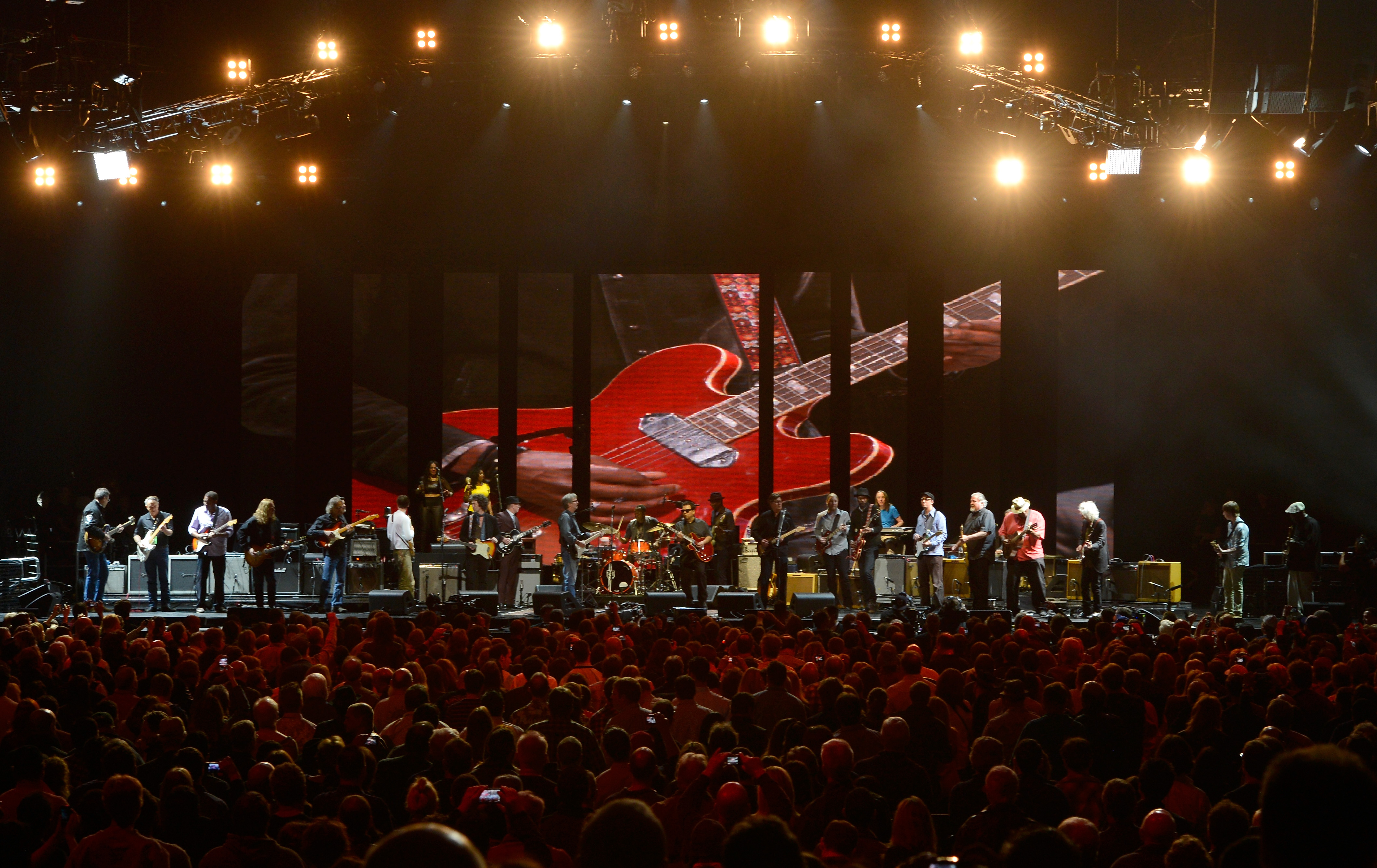
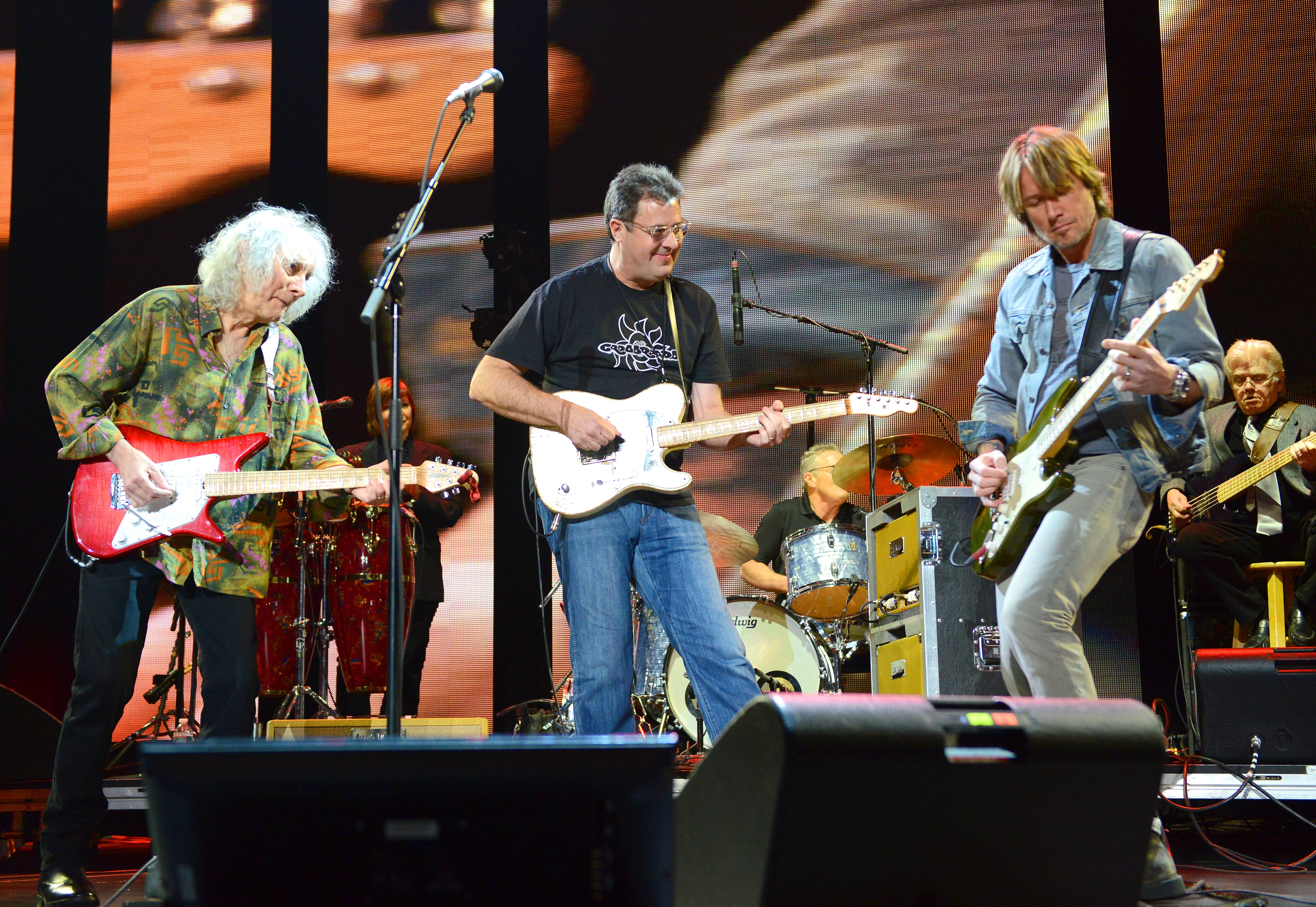
Albert Lee, Vince Gill, Keith Urban
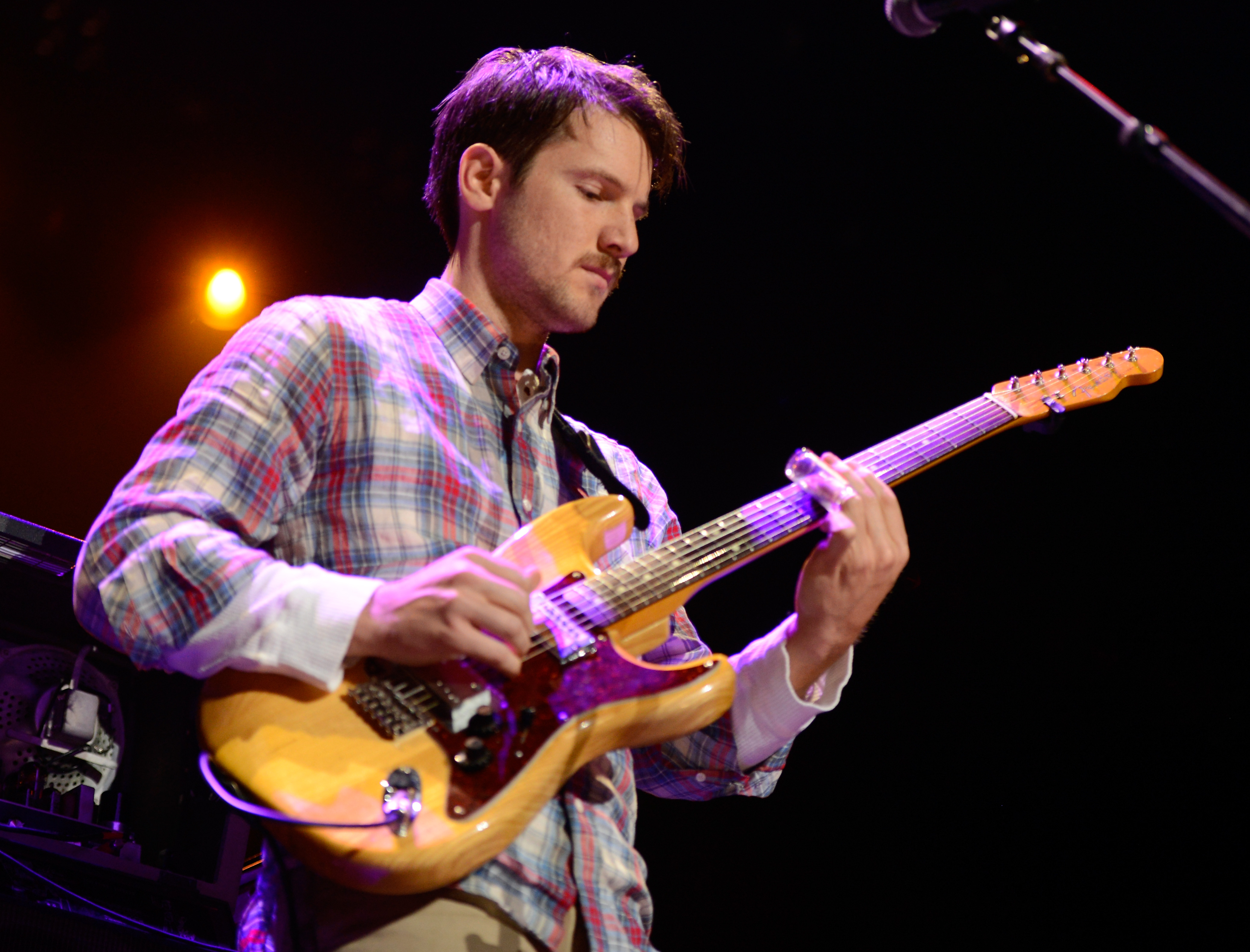
Blake Mills
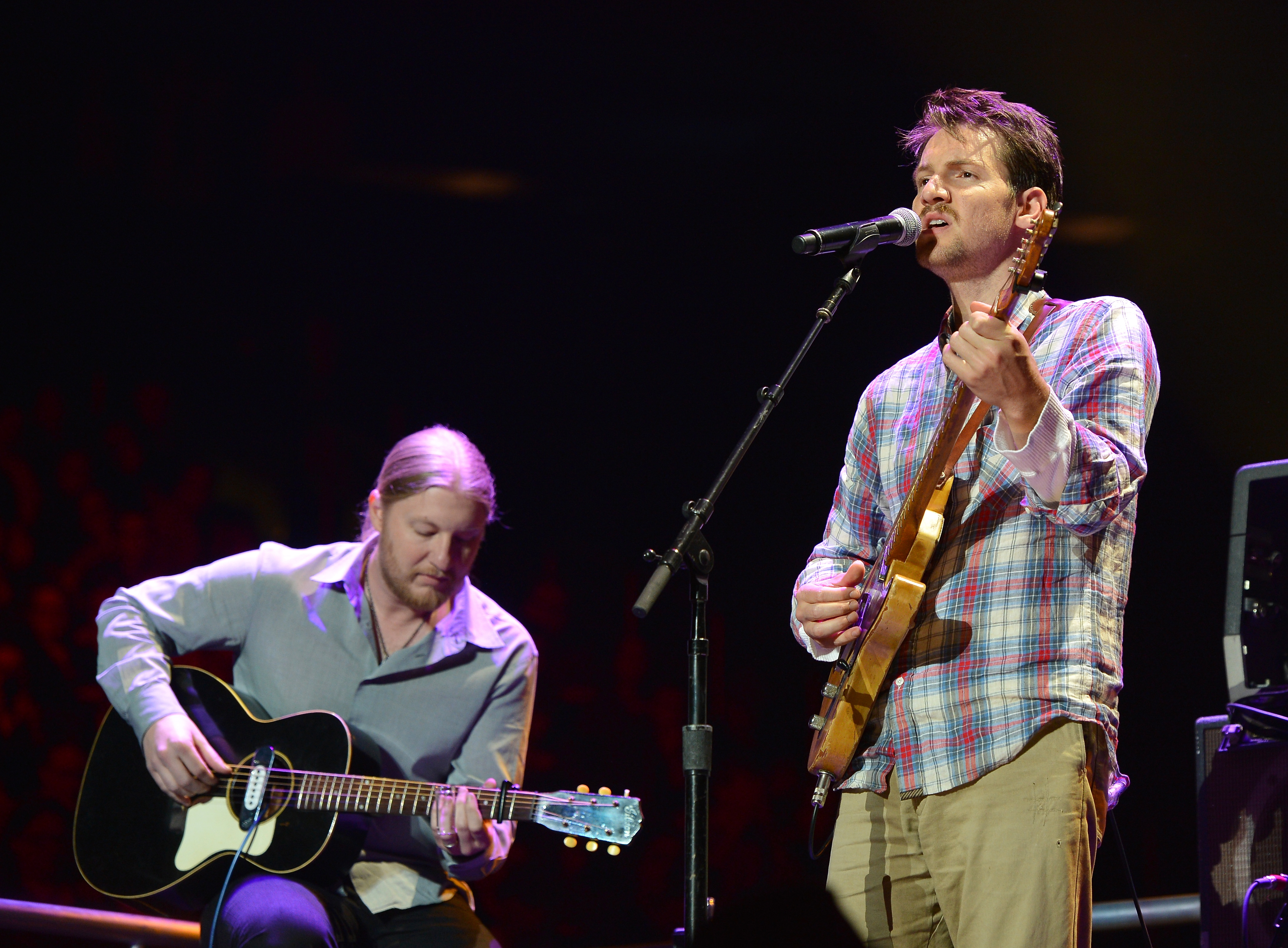
Derek Trucks and Blake Mills
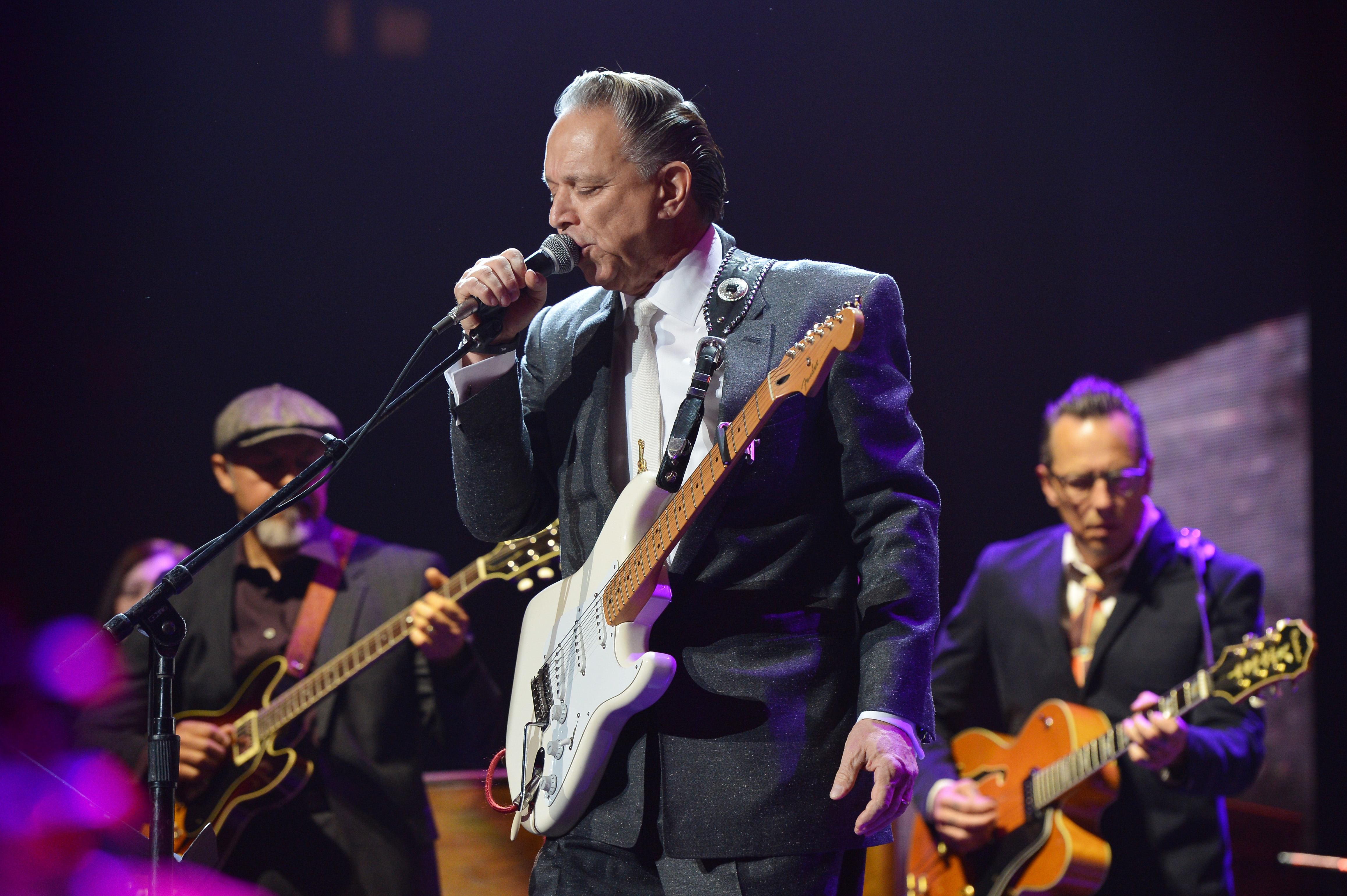
Dave Biller and Jimmie Vaughan
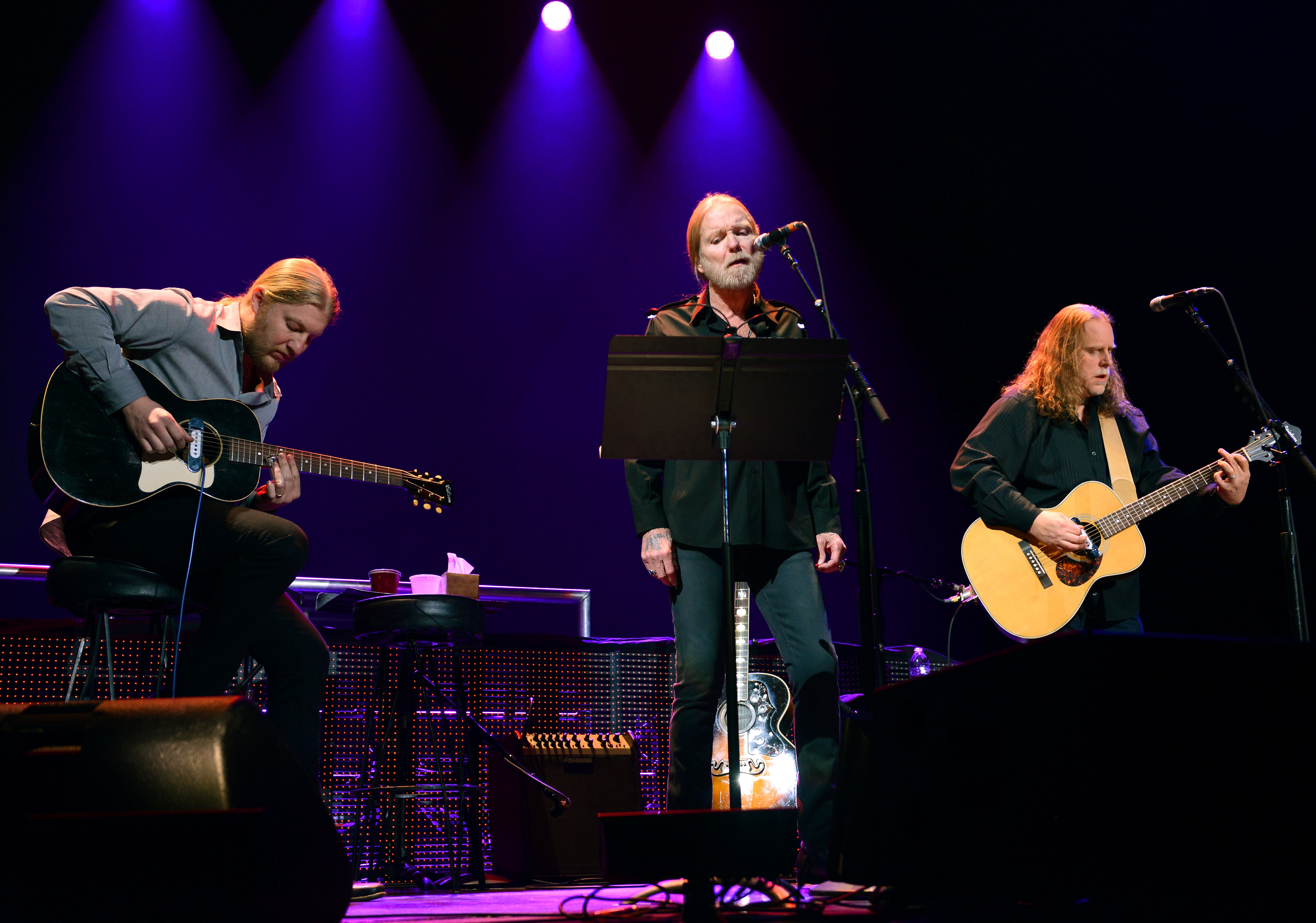
Derek Trucks, Greg Allman, Warren Haynes
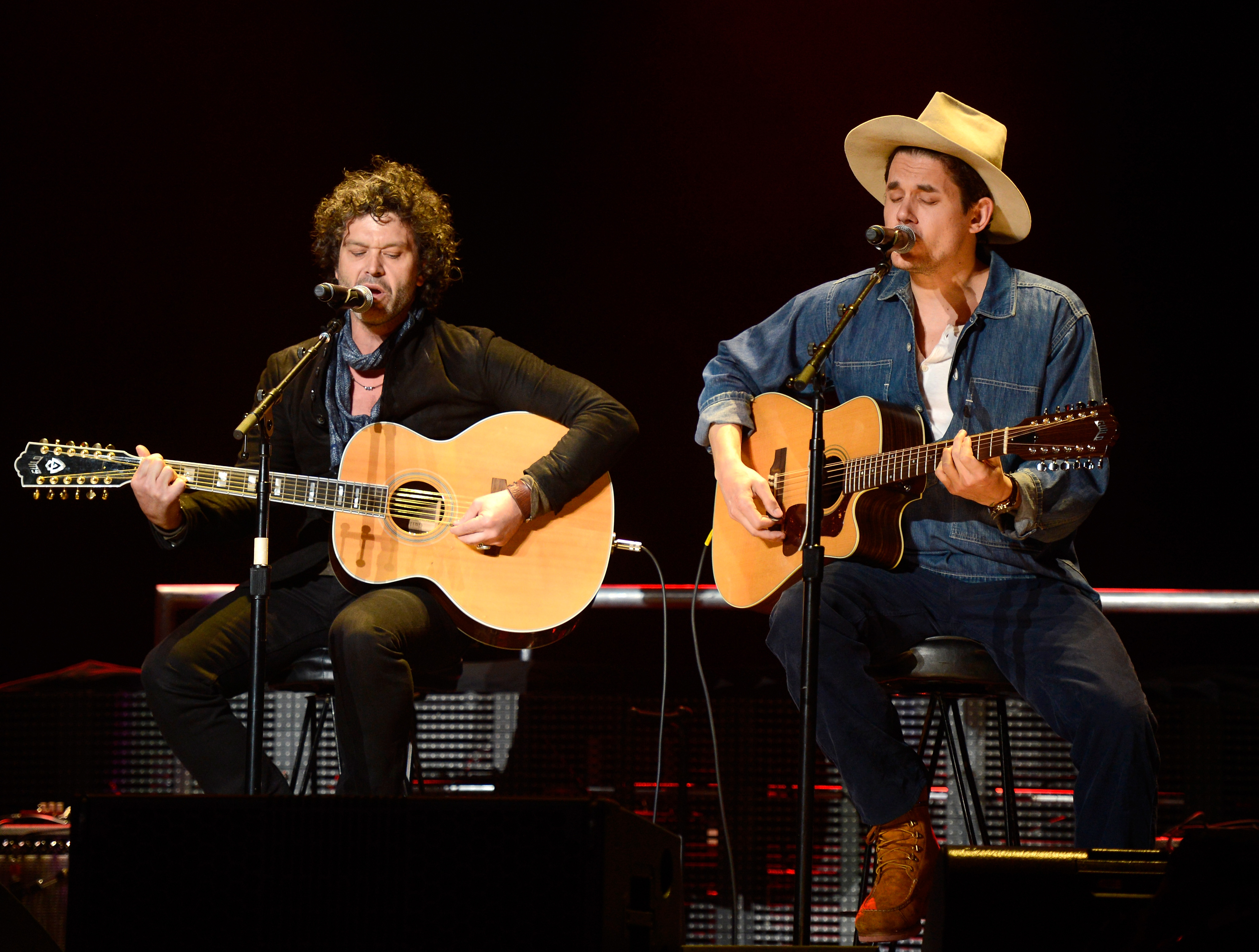
Doyle Bramhall & John Mayer
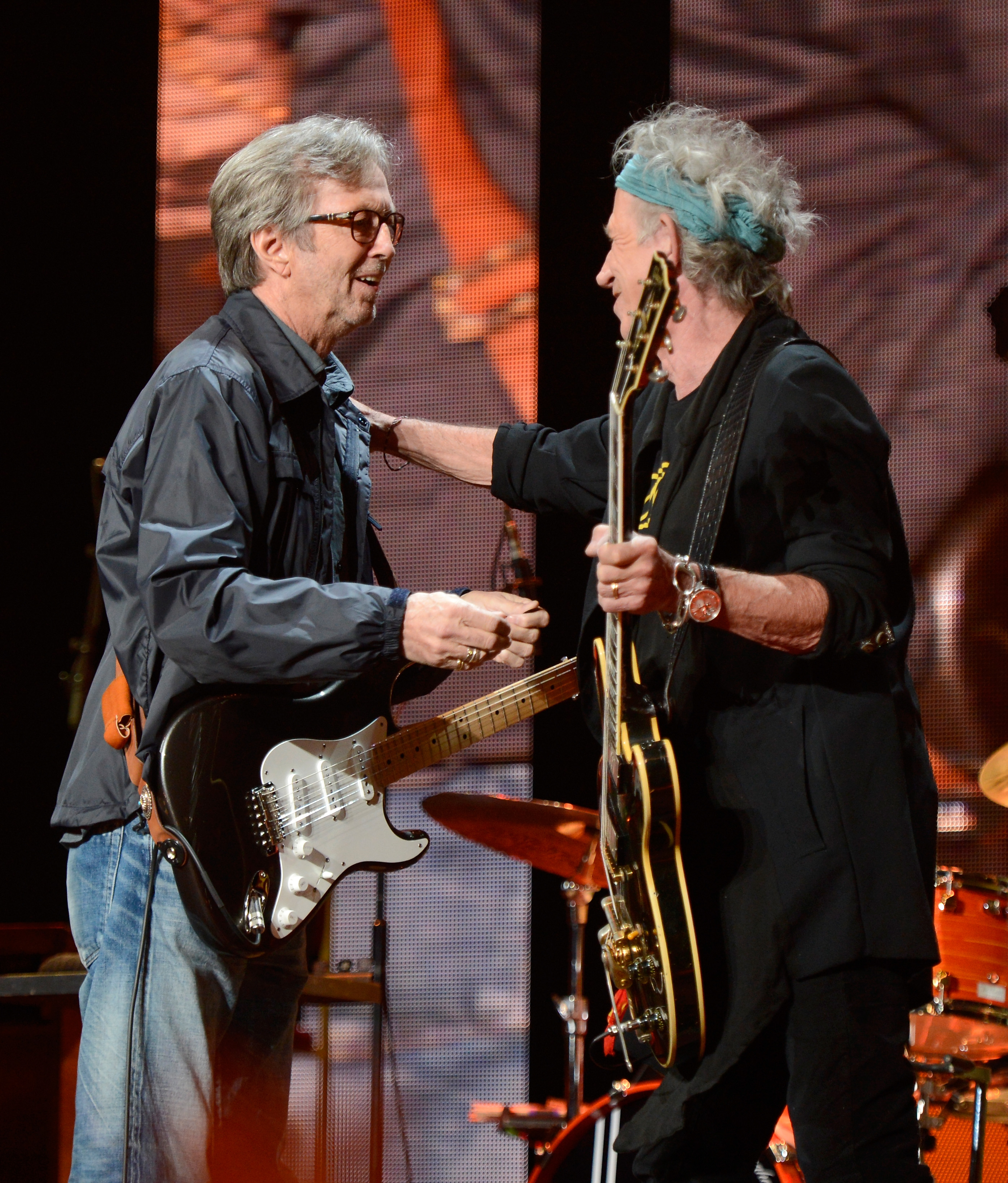
Eric Clapton & Keith Richards
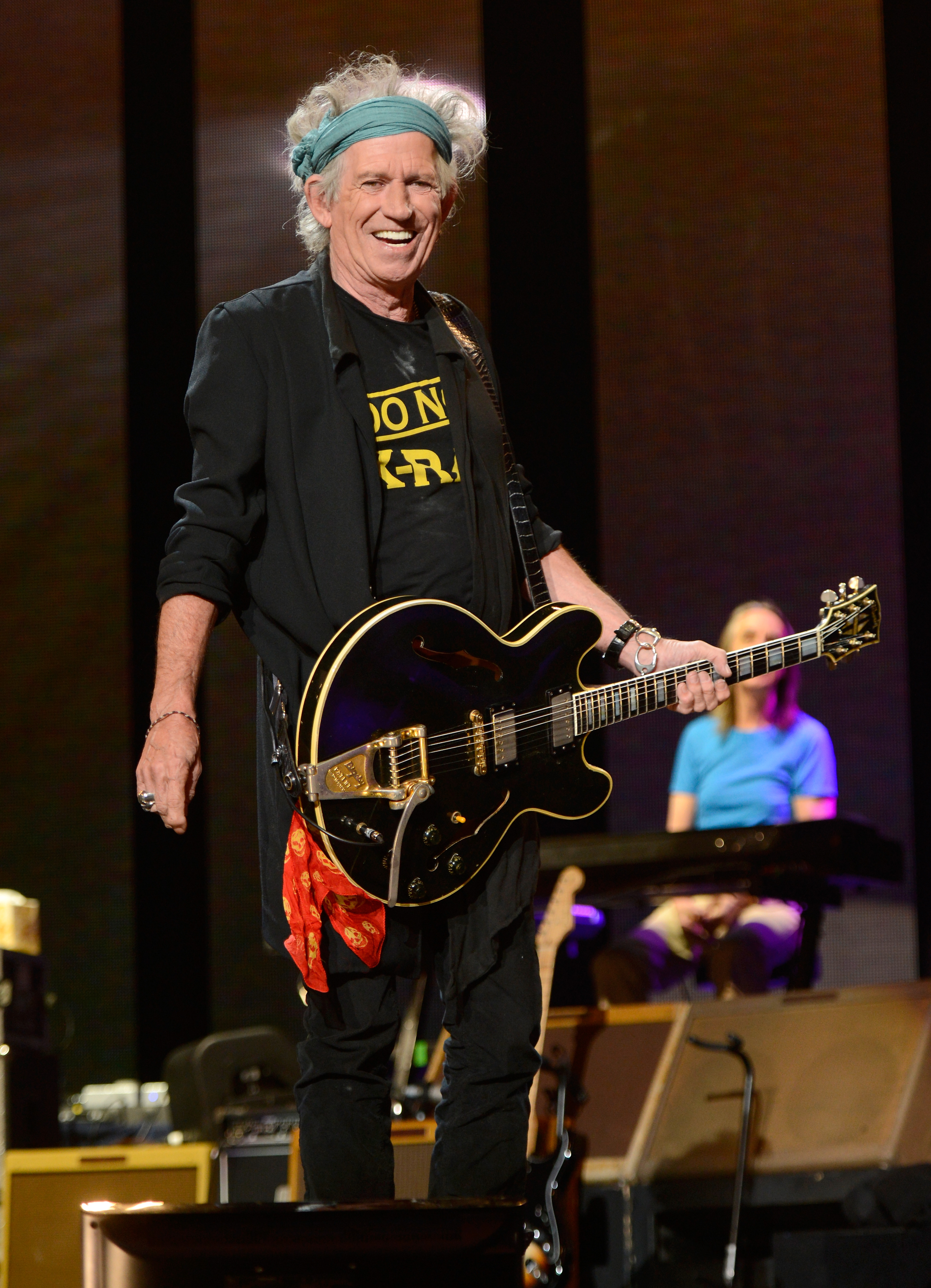
Keith Richards
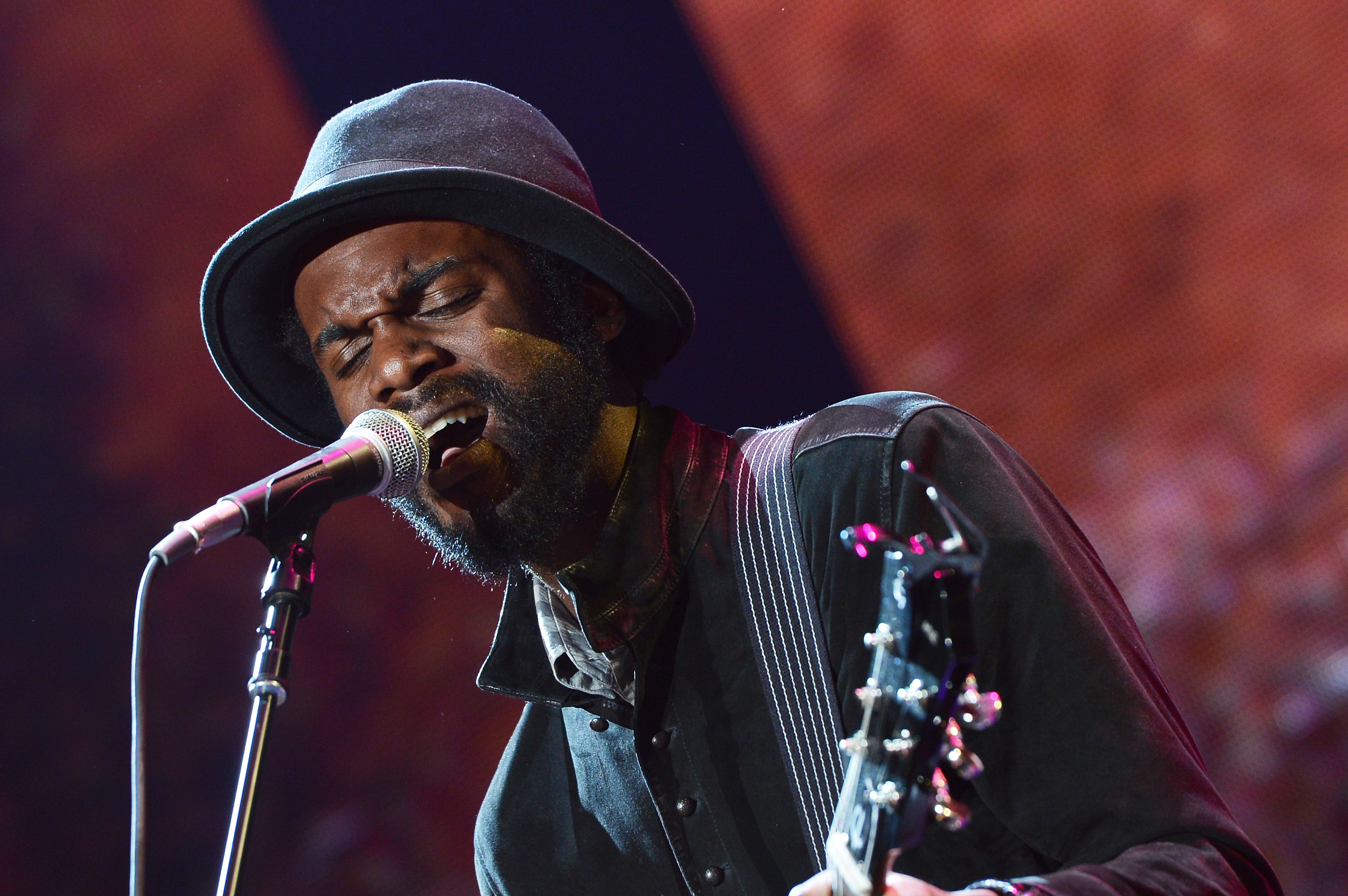
Gary Clark Jr
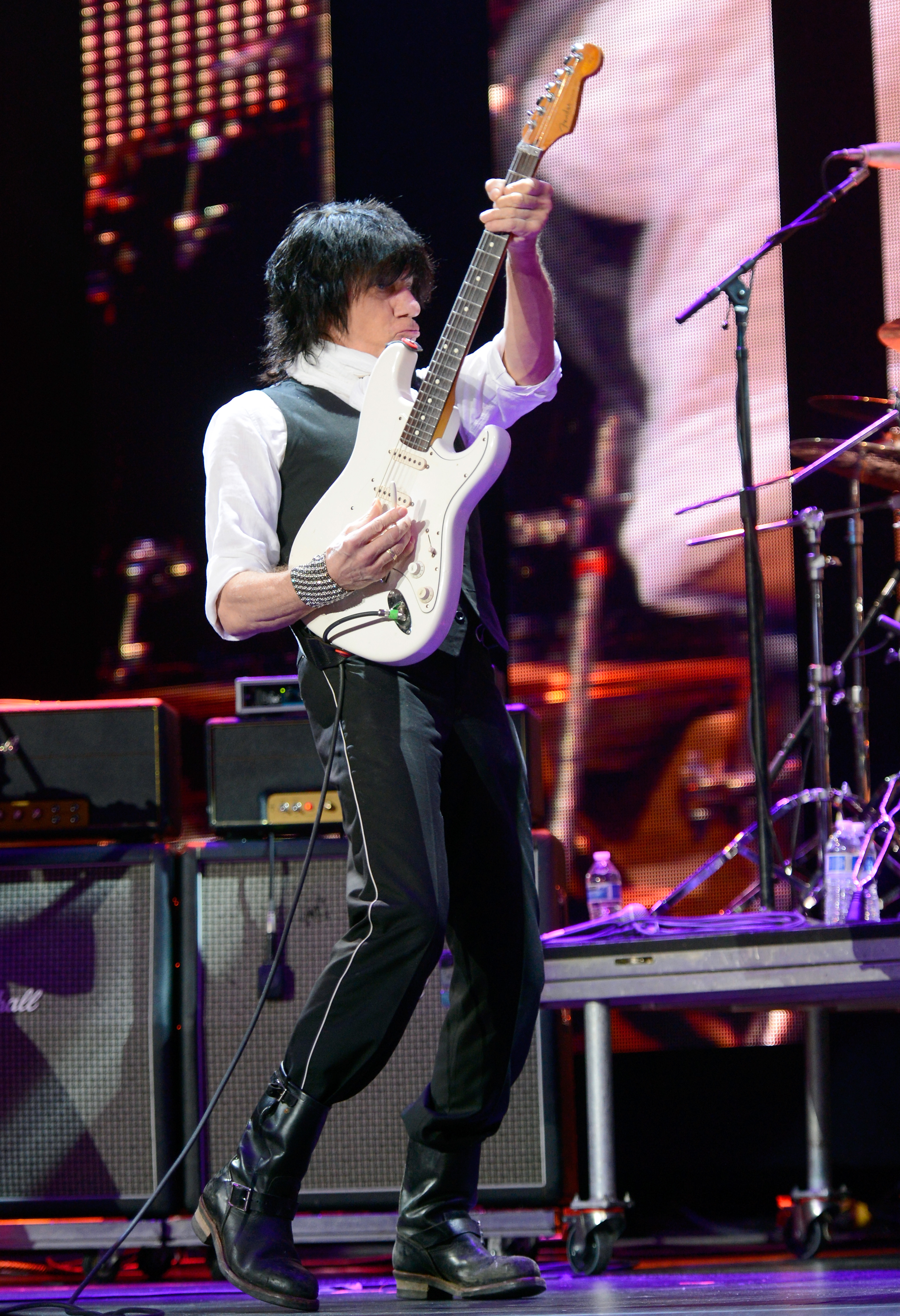
Jeff Beck
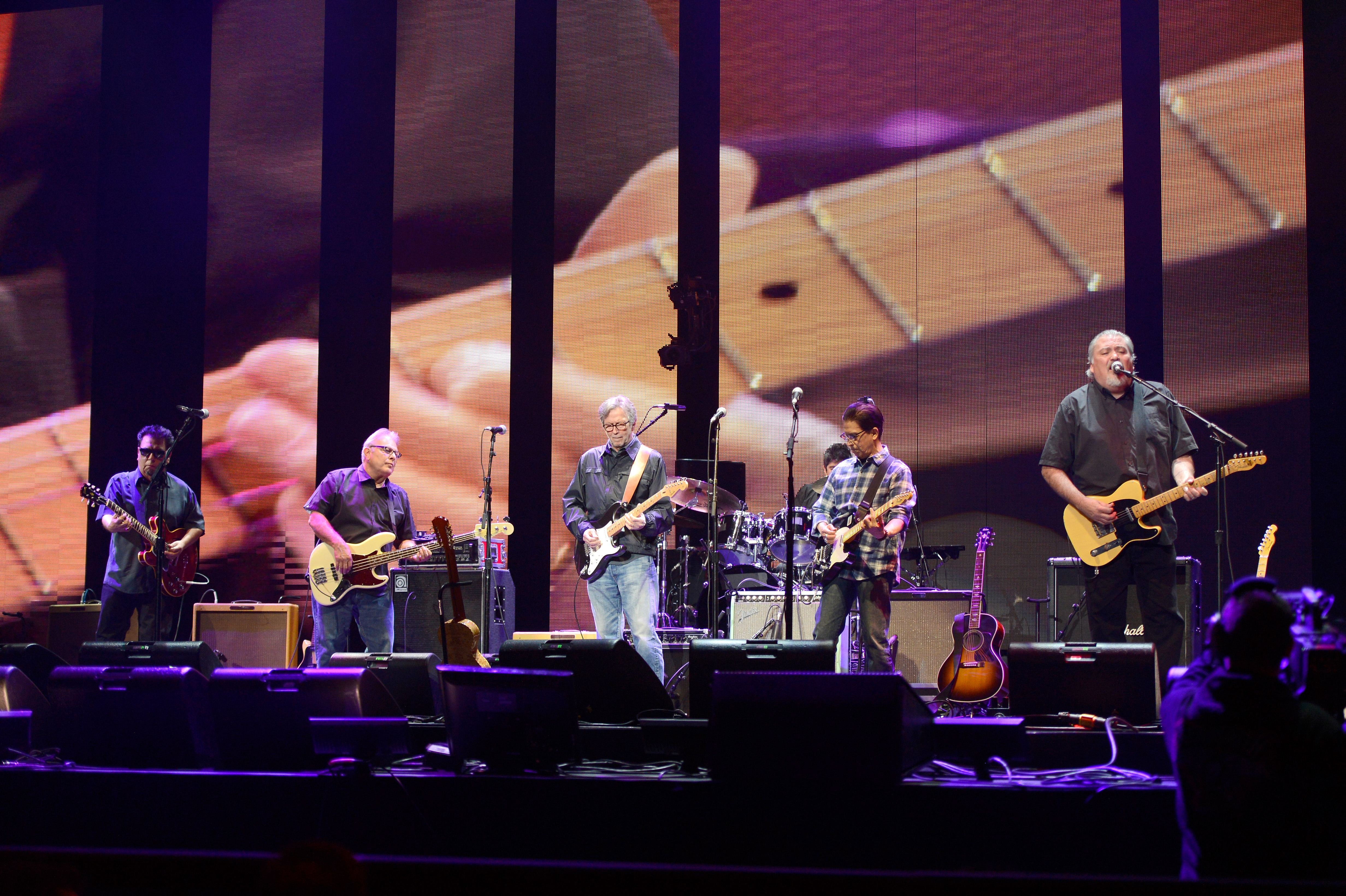
Los Lobos & Eric Clapton
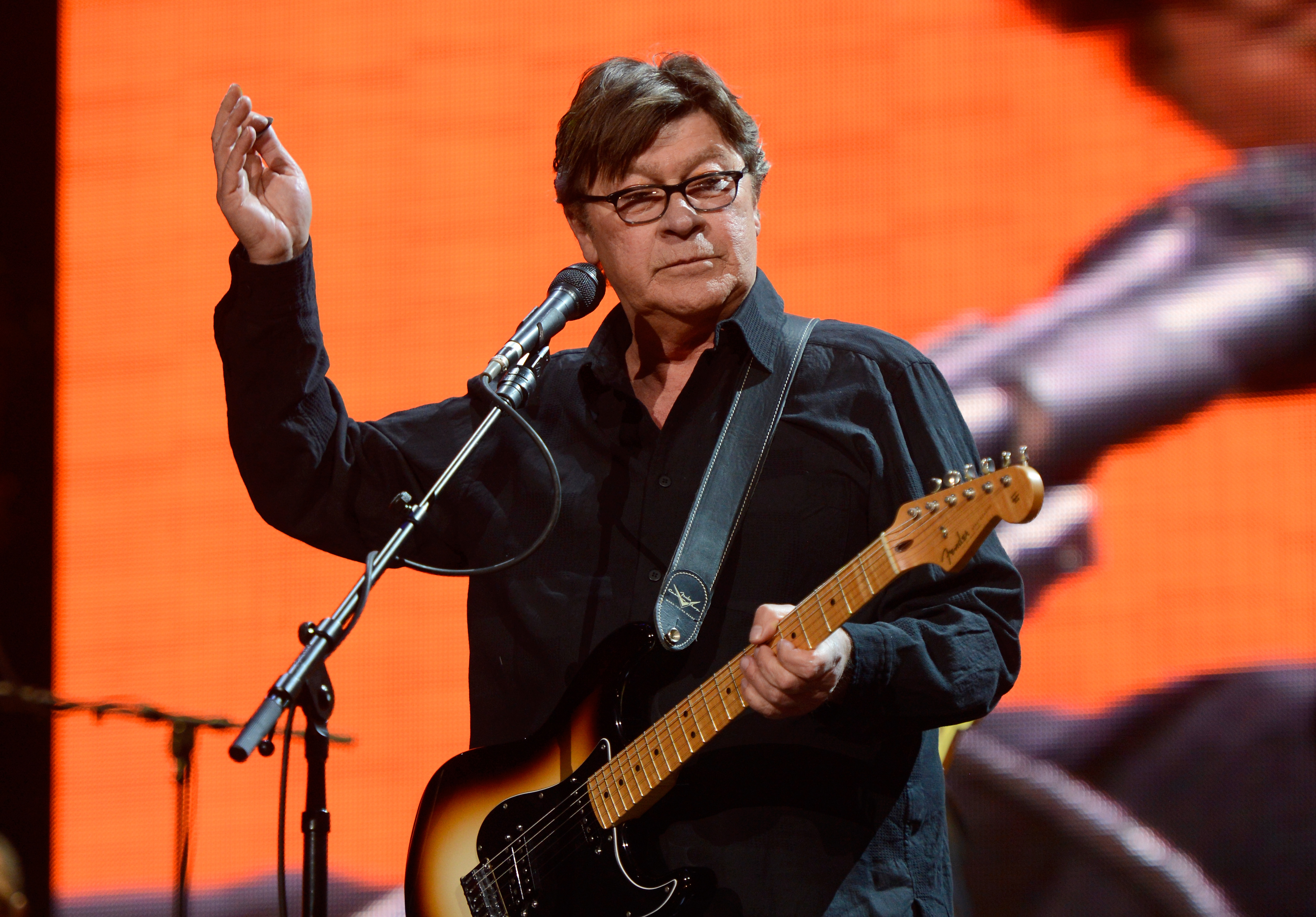
Robbie Robertson
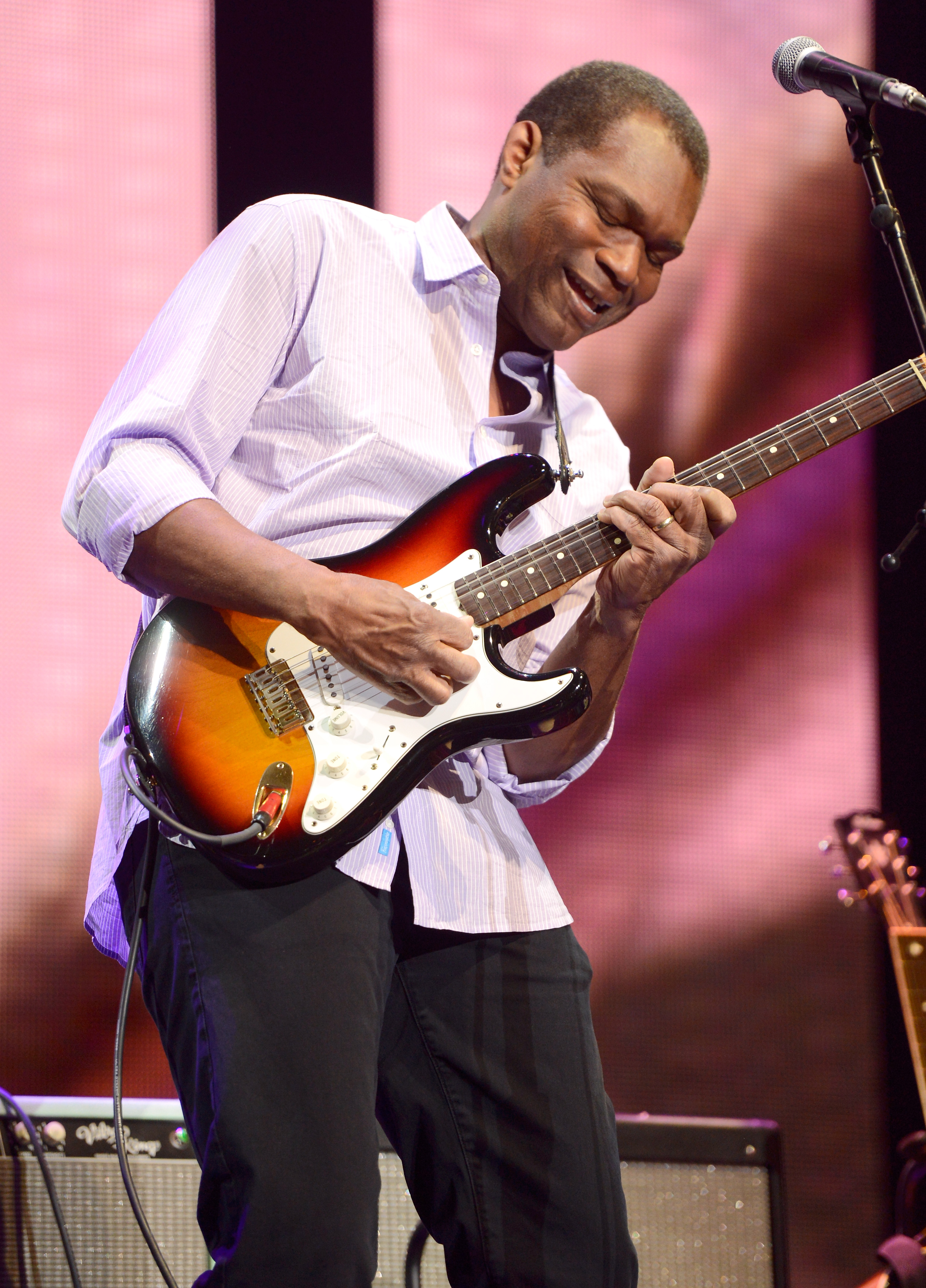
Robert Cray
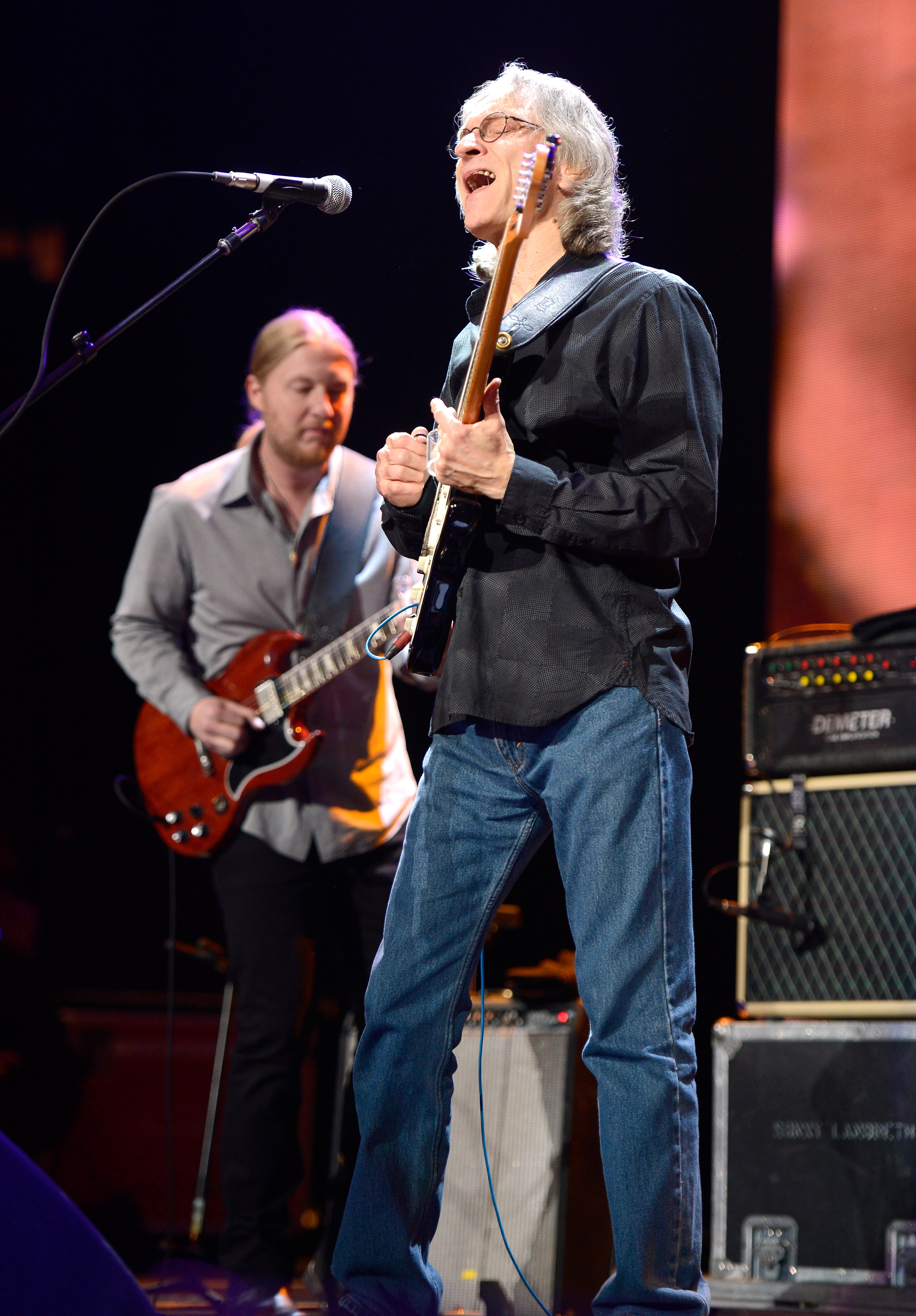
Sonny Landreth & Derek Trucks
